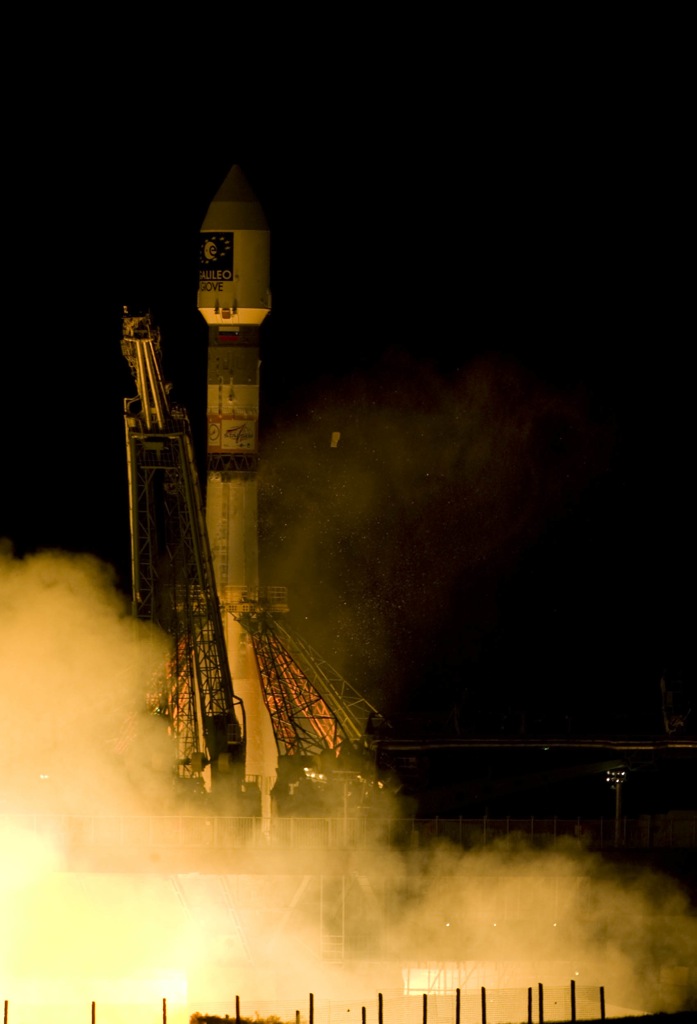Where you want to go depends on where you are. And if you’ve got a GPS system in your hands, and the most accurate clock ever sent into space overhead, you’ll always know exactly where you are. ESA’s GIOVE-B satellite blasted into space on Sunday, taking the next step for the deployment of a European satellite navigation system.
The GIOVE-B satellite lifted off from the Baikonur Cosmodrome on April 27th at 4:16 am local time (22:13 UTC Saturday), and placed the Galileo In-Orbit Validation Element B (GIOVE-B) satellite into a 23,200 km orbit.
Ground controllers confirmed that the satellite deployed its twin solar panels, and it was generating electricity within about 5 hours of launch.
On board GIOVE-B are two redundant rubidium atomic clocks, but these are just backups. The really accurate timepiece is the Passive Hydrogen Maser, which has a stability of better than 1 nanosecond a day. There’s no risk of losing track of time with this – it’s the most stable clock operating in Earth orbit.
GIOVE-B is still just a technology demonstration. It will be followed in 2010 by the launch of the first 4 operational satellites that make up the Galileo navigation system. The European plan to eventually have a constellation of 30 identical satellites operating in a constellation.
Original Source: ESA News Release


That’s impressive. Does the PHM work on the same principles as the rubidium backups? i’m not terribly technically knowlegdable.
That said, bet it STILL won’t be enough to get the UK’s trains running on bloody time!!
Why use Secondary frequency Standards for the clock?
How will they be compared to the Primary Standards of Ceasium?